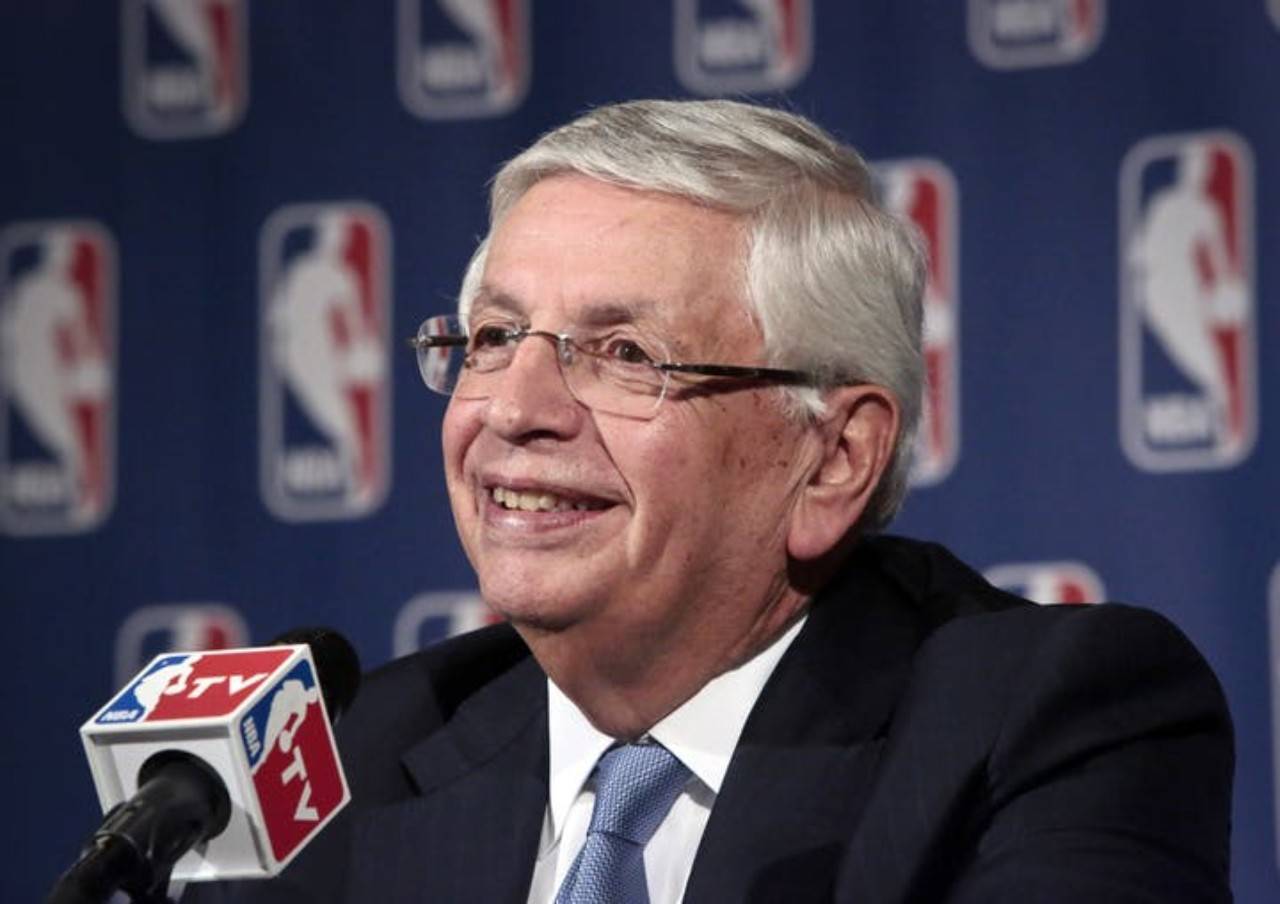By Dan Woike
Los Angeles Times
David Stern, the longtime NBA commissioner who shepherded the NBA from the edges of disaster to unimaginable success, has died at age 77.
Stern died Wednesday as the result of a brain hemorrhage he suffered Dec. 12 in New York, according to a statement released by the league.
For 30 years, Stern oversaw the NBA as it grew into a viable domestic and global product. Under his leadership, the NBA added seven franchises to expand to 30 teams. He negotiated big-money television deals, organized the league offices to include 13 around the world, handled multiple crises and work stoppages, and put a focus on marketing and international exposure.
Born Sept. 22, 1942, in New York City to the owner of a delicatessen, Stern’s work with the NBA began at the very beginning of his professional career. After graduating from law school and passing the New York bar exam, he worked on the lawsuit that established free agency during the NBA/ABA merger.
In 1978, Stern was hired as the NBA’s general counsel and soon was promoted to executive vice president. Working under then-Commissioner Larry O’Brien, Stern and the NBA implemented a salary cap and strict drug testing policies. He replaced O’Brien in 1984.
“David had to fight every step along the way for respect for the NBA,” current Commissioner Adam Silver told Sports Illustrated in 2018. “I inherited a very different situation. A transcendent league, one that was clearly still on the ascent. The charge for me was: Don’t screw it up. David was faced with an entirely different set of circumstances.”
In 1980, the NBA Finals deciding game was shown on tape delay. Teams were losing money. Contraction was a real possibility.
While some events were in motion that were out of Stern’s control (Larry Bird and Magic Johnson had already begun playing in the NBA and Michael Jordan was about to be drafted), Stern had an unquestioned effect on the NBA’s trajectory.
“He’s what you’d call a visionary,” Shaquille O’Neal said during a TNT national broadcast after Stern was rushed into emergency surgery.
Under Stern, the NBA began sending a team to Europe for exhibition games. The league played regular-season games in Japan and angled for a foothold in China. And, perhaps most important, Stern worked with USA Basketball to allow professional players to participate in the 1992 Olympics —creating the Dream Team, which included Jordan, Johnson, Bird, Charles Barkley and Patrick Ewing, among others.
The growth was predicated on Stern’s belief in the NBA’s place as an entertainment option, not just a sports league.
“David came in and looked at the NBA and saw it as something more than just sports,” Isiah Thomas, then the president of the NBA Players Assn., said to Sports Illustrated in 1991. “It’s really just entertainment. It’s a Michael Jackson tour, a Rolling Stones tour. He saw it as an NBA tour.”
In the same profile, Stern compared the league to an iconic American entertainment company —Disney.
“They have theme parks and we have theme parks. Only we call them arenas. They have characters: Mickey Mouse, Goofy. Our characters are named Magic and Michael,” Stern said. “Disney sells apparel; we sell apparel. They make home videos; we make home videos.”
When he took the job in 1984, the NBA’s 23 teams were worth $400 million. When Stern stepped down in 2014, the league’s 30 franchises were worth an estimated $19 billion.
He also was, intentionally or not, a de facto activist in the fight to better inform the public about HIV/AIDS. After Magic Johnson was diagnosed with HIV, Stern spoke with the league’s owners in an effort to convince them that Johnson should play in the 1992 All-Star game. He sent doctors to every team to separate myths from facts about the disease.
When Johnson was selected the game’s most valuable player, Stern hugged him at center court.
He was inducted into the Naismith Memorial Basketball Hall of Fame in 2014.
His tenure wasn’t without controversies. The NBA lost games to lockouts in 1998 and 2011. His dress code policy in 2005 was wildly unpopular at the time. Allen Iverson said: “I don’t think it’s good for the league. It kind of makes it fake.”
There were gambling scandals involving an official and a failed new basketball rollout that led to the league quickly reversing course. Players on the Detroit Pistons and Indiana Pacers had a fight that spilled into the crowd, forcing Stern to issue significant suspensions.
In Los Angeles, Stern became a villainous figure around Lakers’ fandom for vetoing an agreed upon trade between the Lakers and New Orleans Hornets that would’ve sent Chris Paul to play alongside Kobe Bryant. Stern had the power to do so because the NBA was acting as the controllers of New Orleans’ franchise at the time. Paul was then successfully traded to the Clippers.
After stepping down, Stern became involved with several start-up companies with tangential relationships to basketball like wearable medical technologies.
“When I think back on the best stuff, I’m not thinking about Michael (Jordan) hitting all the threes or the last shot,” Stern told Sports Illustrated in 2018. “I think about Magic announcing he was HIV positive, and Latrell Sprewell deciding to choke P.J. Carlesimo, Ron Artest going into the stands, (former referee Tim) Donaghy betting on games.
“Those were places I had to step up and protect the league and that comes with the job. That wasn’t extra stress. That was the job.”
Stern is survived by his wife, Dianne, and two sons, Eric and Andrew.


